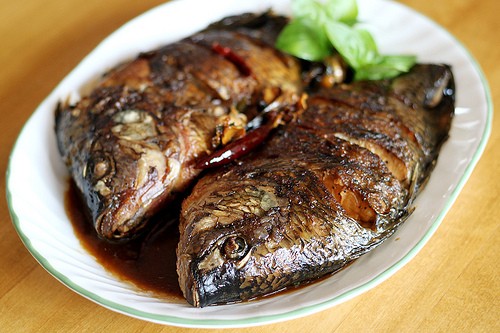
A peptide in fish can help treat cardiovascular diseases-disorders of the heart and blood vessels, according to a new study. The list includes strokes, heart attacks, heart diseases and heart failure.
Urotensin II (UII) in teleost fish facilitated this by targeting and activating UT, a G protein –coupled receptor, which further helped control certain important signalling pathways like intracellular Calcium. Nearly 20,000 species are found in the ray-finned fish called teleosts.
Researchers found that the peptide can help widen or narrow blood vessels and also regulate a wide range of biological activities associated with kidneys, central nervous system and cardiovascular system.
"We have been working on this exciting peptide for a number of years; it exhibits a very interesting pharmacological profile. Design and evaluation of small molecule drugs has potential for use in the treatment of several cardiovascular diseases," Professor David Lambert from the University of Leicester in UK, said in a news release.
The study has been reported in the Pharmacological Reviews.
Fish, according to the American Heart Association, is rich in protein and low in saturated fats. Omega-3 fatty acids in fish have been shown to provide similar heart benefits.
Citing the benefits, the American Heart Association recommends public to consume fish at least twice a week. "When we talk about the advantages of eating fish, we're talking about over the long term – which comes from eating it twice a week," Alice Lichtenstein from the Tufts University in Boston, a former chair of the American Heart Association's Nutrition Committee, said in a statement.
Salmon, tuna, sardines, mackerel and bluefish are some of the varieties rich in omega-3 fatty acids. However, the experts cautioned that pregnant women and children should completely abstain from eating swordfish, tilefish, king mackerel or shark, to avoid risk of getting exposed to mercury.
On the other hand, according to the Association, fish intake can considerably benefit middle-aged people and post-menopausal women.
















